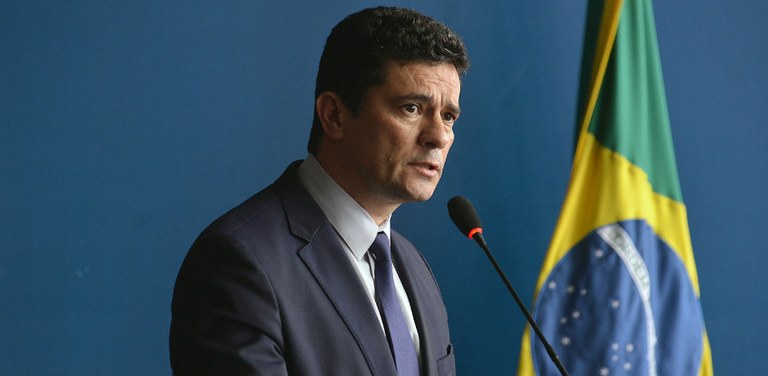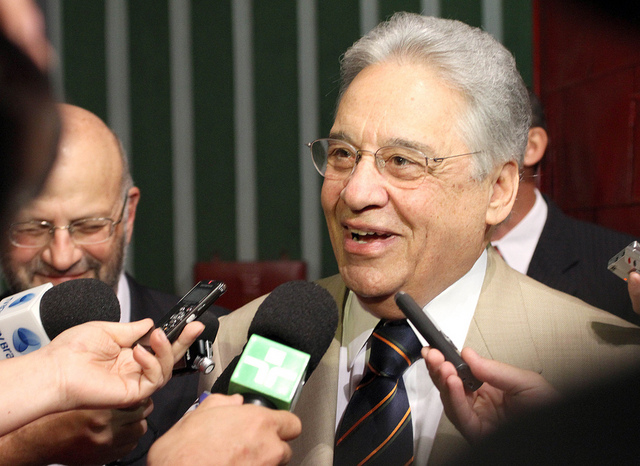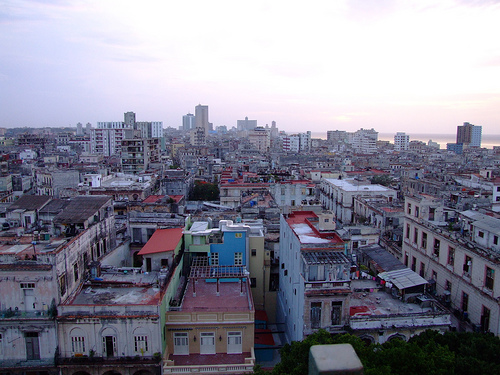
Brazil, Dispatches
In Wake of School Shooting, Brazil’s Anti-Crime Bill Could Bring More Tragedy, Experts Warn
March 20, 2019 By Eduardo Campos Lima
As two shooters killed eight students and staff at a school in the São Paulo suburb of Suzano last week, several crime and gun bills were making their way through Brazil’s Congress. The tragedy casts a new light on these measures, including the anti-crime bill and President Jair Bolsonaro’s January decree that makes it easier for Brazilians to justify keeping guns in their homes. Experts warn that the anti-crime bill, in combination with these other measures, could lead to further tragedy.
“Here in Brazil the authorities are irresponsibly betting on the policy of barbarism and favoring the access to guns,” Daniel Cerqueira, an economist and advisor on the Brazilian Forum on Public Security, said in an email. “Thereby we can unfortunately anticipate that other Suzanos will happen.”
The anti-crime bill, a set of proposals that aim to increase the state’s capacity to fight organized crime, corruption and urban violence, was presented to Brazilian governors in early February by Minister of Justice Sérgio Moro. On March 14, Moro faced a political setback when the president of the Chamber of Deputies (the speaker of the lower house of the National Congress), Rodrigo Maia, created a work group to analyze Moro’s bill. The group has up to 90 days to conclude the analysis.
Bolsonaro appointed Moro to the Ministry of Justice post in November. Before, Moro was a federal judge in charge of corruption cases, including Operation Car Wash, which led to the arrest of Brazil’s former leftist president Luiz Inácio Lula da Silva on bribery charges. Moro joined Bolsonaro’s administration with the promise of cracking down on crime and political corruption. His anti-crime bill was intended to be the first step in that direction.
The bill would modify several parts of the penal legislation and a few other criminal laws. Most of the proposals would lengthen prison sentences for heinous crimes and take away some prisoners’ right to temporarily leave the prison for holidays, which is currently allowed. Brazilian legislation also allows convicts to appeal their verdicts and avoid prison until all possible appeals are exhausted. Under Moro’s proposal, convicts of violent crimes, such as murder, would be arrested immediately and forced to appeal from prison. This proposal is in line with a 2016 Supreme Court ruling that said convicts could be arrested after confirmation of their first sentence.
The anti-crime bill also includes a few measures that deal with criminal organizations and the investigation of violent crimes. It institutes national databases of genetic profiles – convicts of willful crimes would have DNA samples extracted – and of ballistic records. It also allows for the possible confiscation of some convicts’ properties and goods, if they committed crimes that carry sentences of more than six years. When it comes to international crimes, the bill intends to allow the police and the prosecutors to form international teams with their foreign counterparts.
The most controversial propositions are related to the introduction of plea bargaining in Brazil, which is currently nonexistent in the country’s legislation, and the loosening of restrictions on self-defense killings, including ones perpetrated by police officers. If a killing was motivated by excessive force due to “excusable fear, surprise or violent emotion,” the judge can reduce the penalty to half or even give up applying any penalty. Some experts argue these measures are risky, saying the plea bargain, in particular, is not suited for Brazil.
“It would be very risky for such a contentious society as the Brazilian,” said Eduardo Reale Ferrari, a lawyer and professor of criminal law at the University of São Paulo. “We would be trading investments on intelligence, information and investigation for a bet on litigation – particularly focusing on the most vulnerable people, who would feel pressured to accept the bargain.”
This is exactly what happens in the U.S. judicial system, according to Angela J. Davis, professor of law at American University and author of the book “Arbitrary Justice: The Power of the American Prosecutor.”
“Prosecutors decide whether there will be a criminal charge, what the charge will be, and whether there will be a plea bargain,” Davis said. “Even innocent people end up pleading guilty, out of fear of going to trial under too many charges.”
Latinos and Blacks are particularly vulnerable to the plea bargain, and there is a disproportionate number of them in U.S. prisons. Critics of the introduction of plea bargaining in Brazil fear the same thing will happen to young, poor Blacks in their country. But it does not have to happen this way in Brazil, argues Roberto Livianu, a prosecutor in São Paulo. In the United States, prosecutors are elected, but in Brazil they are selected after taking the concurso público, or public test. Those with best grades are hired for life.
“If defendants suffer high pressures to accept the bargain in the United States, we do not have to do the same here,” Livianu said. “The Brazilian prosecutors will not gain anything more if they get more or less plea bargains.”
Some experts say the anti-crime bill has an improvised nature, with its abrupt disclosure and apparent lack of cohesion. The project has insufficient scientific perspective and is not based on an adequate diagnosis of violence in Brazil, according to Cerqueira, who authored an award-winning PhD thesis on the correlation of the propagation of weapons and the rise in violent crimes in the Brazilian society.
“This bill reflects perfectly the profile of the minister himself,” Cerqueira said. “It deals with judiciary aspects, but does not offer a deep understanding of the issues involving public security.”
In a recent speech, Moro said corruption, organized crime and public safety are all connected. “But corruption has nothing to do with someone who steals a smartphone or kills a person during a pub fight,” Cerqueira said. “Those are issues directly related to urban violence.”
In order to adequately structure an anti-crime project, Cerqueira said, Moro should have counted on the work of a team of experts, who would prepare initial proposals and then discuss them with the main operators of public security, such as police officers, justice officials, non-governmental organizations, politicians and academics.
“This never happened, so this project is not a project. It is only a draft that congregates unrelated ideas,” Cerqueira said.
Reale said he doesn’t think the anti-crime bill will be approved as it is written now, but the emotional appeals by Moro and Bolsonaro have been effective. According to a survey, 62 percent of the population supports Moro’s bill. And Bolsonaro won his campaign, in part, on his assertion that stricter laws would result in less violence. Some experts, however, doubt this logic and worry it will end in further tragedy. Brazil counts more than 60,000 homicides per year, and more firearms could cause more deaths, Cerqueira argues.
“Combined with Moro’s proposal regarding self-defense killings, the result will be a tragedy kit,” Cerqueira said. “The only explanation for this kind of proposition is the politicization of the public security taking the place of rationality.”





